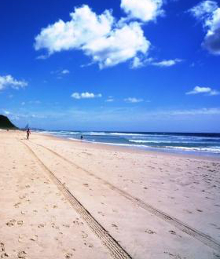Dredge tests pledged
 The SA Government wants to protect Adelaide’s beaches through a sand dredging trial.
The SA Government wants to protect Adelaide’s beaches through a sand dredging trial.
The state has made a new commitment following the recommendations of the independent Adelaide Beach Management Review, which highlighted dredging as a potential long-term, sustainable solution for maintaining beach levels by recycling sand that naturally drifts north along the coast.
The two-month trial will involve collecting sand from a nearshore zone between Taperoo and North Haven and delivering it by boat to West Beach to combat coastal erosion.
This trial, anticipated to conclude by early November 2024, pending approvals and vessel availability, will include scientific and environmental analysis, as well as extensive community consultation.
The state says natural sand drift makes recycling within Adelaide’s beach system essential to prevent the coastline from eroding to rock and clay.
The trial aims to determine if dredging can be a sustainable long-term solution for beach preservation.
Dredging received the strongest community support during consultations last year, as it is likely to cause less disruption compared to other methods like truck movements or constructing a pipeline between Largs Bay and West Beach.
Additionally, the health of West Beach will be bolstered by an extra 550,000 cubic metres (m3) of sand over the next five years.
This sand, sourced from quarries or viable offshore locations, aims to significantly improve sand levels and amenities at West Beach and Henley Beach South.
The Government has allocated $20.7 million in the 2024/25 budget for these beach management works, led by the Department for Environment and Water.
This funding will cover the dredging trial, environmental analysis, and community engagement efforts.
Up to 200,000m3 of quarry sand will be delivered to West Beach by truck over the next year while the department investigates viable offshore sand sources.
This is in addition to the 50,000m3 of quarry sand delivered this autumn and the 100,000m3 delivered in 2023.
Environmental monitoring is expected to ensure that the dredging does not adversely affect water quality or seagrasses.








 Print
Print